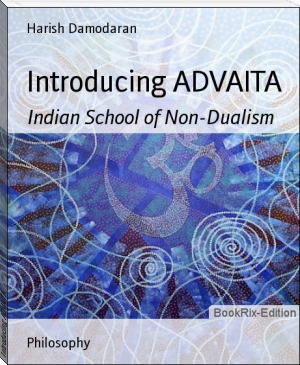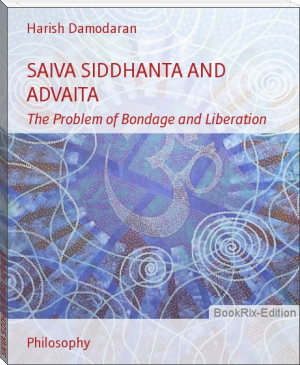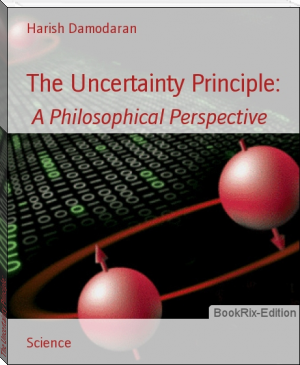author - "Harish Damodaran"

Advaita Vedanta is considered as the most influential sub-school of the Vedānta (literally, end or the goal of the Vedas, Sanskrit) school of Hindu philosophy.
Advaita (literally, non-duality) is a monistic system of thought.
"Advaita" refers to the identity of the Self (Atman) and the Whole (Brahman).
Adi Shankara consolidated the Advaita Vedanta, an interpretation of the Vedic scriptures that was approved and accepted by Gaudapada and Govinda Bhagavatpada siddhānta.

Philosophy in India, through ages, enjoyed a very esteemed position as a master science and served as an inspiration for all other fields of study. Hence scholars used to call it as the mother of all subjects.
A unique feature of all the different schools of Indian philosophy is that, irrespective of being orthodox or heterodox, they always struggle to answer the problem of the bondage and the liberation. Both the philosophies; Advaita and Saiva Siddhanta are no exceptions. Together they accept the existence of the bondage that keeps the individual self away from the realization of the absolute self and strive to find the most probable way of breaking down the bonds for gaining the ultimate freedom.
The present study is a critical approach to compare the ways in which both the schools of Saiva Siddhanta and Advaita attempt to solve the vital problem of bondage and liberation.

Advaita Vedanta is considered as the most influential sub-school of the Vedānta (literally, end or the goal of the Vedas, Sanskrit) school of Hindu philosophy.
Advaita (literally, non-duality) is a monistic system of thought.
"Advaita" refers to the identity of the Self (Atman) and the Whole (Brahman).
Adi Shankara consolidated the Advaita Vedanta, an interpretation of the Vedic scriptures that was approved and accepted by Gaudapada and Govinda Bhagavatpada siddhānta.

Philosophy in India, through ages, enjoyed a very esteemed position as a master science and served as an inspiration for all other fields of study. Hence scholars used to call it as the mother of all subjects.
A unique feature of all the different schools of Indian philosophy is that, irrespective of being orthodox or heterodox, they always struggle to answer the problem of the bondage and the liberation. Both the philosophies; Advaita and Saiva Siddhanta are no exceptions. Together they accept the existence of the bondage that keeps the individual self away from the realization of the absolute self and strive to find the most probable way of breaking down the bonds for gaining the ultimate freedom.
The present study is a critical approach to compare the ways in which both the schools of Saiva Siddhanta and Advaita attempt to solve the vital problem of bondage and liberation.
